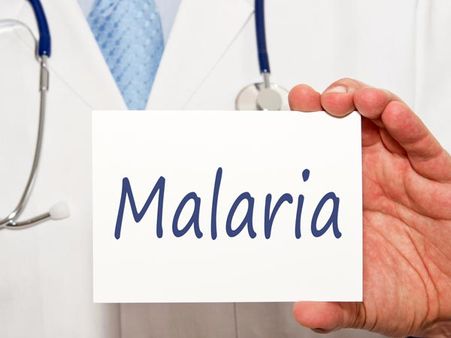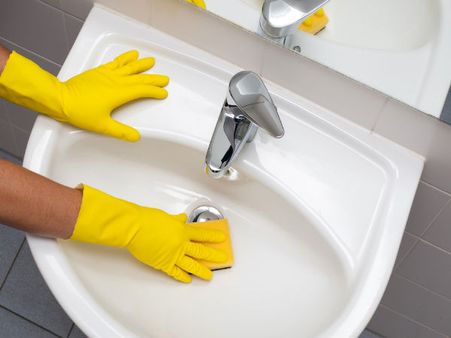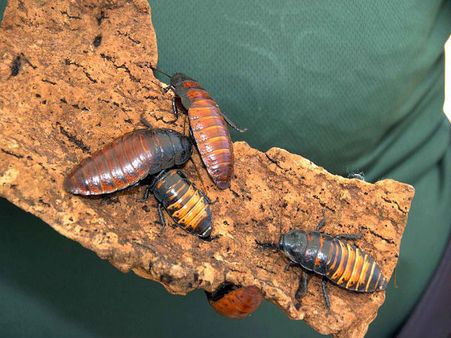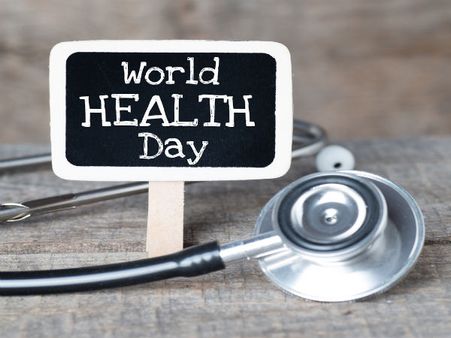Just In
- 2 hrs ago

- 2 hrs ago

- 4 hrs ago

- 5 hrs ago

Don't Miss
- Sports
 PAK vs NZ Dream11 4th T20I: Squads, Fantasy Tips & Best Picks for Pakistan vs New Zealand fourth match
PAK vs NZ Dream11 4th T20I: Squads, Fantasy Tips & Best Picks for Pakistan vs New Zealand fourth match - Automobiles
 2024 Jeep Wrangler Facelift Video Review: Off-Roading Specialist Gets More Friendly
2024 Jeep Wrangler Facelift Video Review: Off-Roading Specialist Gets More Friendly - Movies
 Chacha Vidhayak Hain Humare 3 OTT Release Date & Platform: 5 Reasons To Watch Zakir Khan’s Show
Chacha Vidhayak Hain Humare 3 OTT Release Date & Platform: 5 Reasons To Watch Zakir Khan’s Show - Education
 UPSC CAPF 2024 registration begins; Apply online for 506 Assistant Commandant posts, Know more
UPSC CAPF 2024 registration begins; Apply online for 506 Assistant Commandant posts, Know more - Technology
 Honeywell Trueno U5100 Review: Quality Audio Meets Comfortable Design at an Oh-So Reasonable Price
Honeywell Trueno U5100 Review: Quality Audio Meets Comfortable Design at an Oh-So Reasonable Price - News
 417 Out Of 1192 Candidates In Phase 2 Of Polls Face Criminal Cases, Most From BJP: ADR Data
417 Out Of 1192 Candidates In Phase 2 Of Polls Face Criminal Cases, Most From BJP: ADR Data - Finance
 Rs 44,000 Crore M-Cap Lost, Stock Falls 10%, No More 4th Largest Bank; How RBI's Ban Rocked Kotak
Rs 44,000 Crore M-Cap Lost, Stock Falls 10%, No More 4th Largest Bank; How RBI's Ban Rocked Kotak - Travel
 Escape to Kalimpong, Gangtok, and Darjeeling with IRCTC's Tour Package; Check Itinerary
Escape to Kalimpong, Gangtok, and Darjeeling with IRCTC's Tour Package; Check Itinerary
World Health Day: Prevent Vector-borne Diseases
April 7th is considered as World Health Day for spreading the awareness about the importance of health and healthy living among people all around the globe. Every year it comes with a theme slogan and the whole year will be dedicated to the same topic. World Health Day theme 2014 is vector-borne diseases with the slogan “Small bite, big threat”. The incidence of diseases such as malaria, dengue, schistosomiasis, leishmaniasis, Lyme disease and yellow fever has been increased tremendously among the world population. These are caused by the vectors like mosquitoes, flies, water snails and ticks. More than half the world’s population is considered to be at risk for vector-borne diseases.
MOST COMMON HEALTH PROBLEMS IN INDIA
The interesting fact is that most of the vector-borne diseases are preventable if we take some care and precautions. The World Health Day theme 2014 is giving emphasis to the treatment and eradication of vector-borne diseases. This will help to make the treatment measures available to people of all levels, no matter what is their financial status and standard of living. But to prevent the occurrence of vector-borne diseases, it is more important to let the people know about the seriousness of the disease. This increases the significance of considering World Health Day 2014 as a day to make people alert and conscious of vector-borne diseases. Here, we may discuss some health care tips to prevent vector-borne diseases.

Environmental management
Give importance to environmental management programs to reduce or eliminate vector breeding. The most common strategies are projects for water resources management and waste disposal. Prevent vector growth and breeding in your surroundings.

Biological control
One of the most effective ways to control vector-borne diseases is to use biological control measures like bacterial larvicides and larvivorous fish associated with your water resources. This will be the safest method that will help in vector control.

Chemical methods
Chemicals are also used effectively to control vectors by interrupting the lifespan of vectors. Try using chemicals in a judicious way depending on the type of vectors. These are available in the form of residual sprays, space sprays, larvicides and adulticides.

Bed nets
Along with environmental management, it is important to be aware of the importance personal protection. Personal protective measures mainly include insecticide-treated nets and bed nets. This is important for the care of children as well.

Sanitation
The easiest thing that we can do for vector control is to keep your home and surrounding hygienic and healthy. Do vector check daily on your carpets, rugs, bed and cupboards. Take proper measures for waste disposal as well.

Insect repellents
Insect repellents are considered to be one of the most common methods for preventing vector-borne diseases. Insect repellents containing DEET, preferably more than 20 per cent will be the best choice.

Pet care
It will be fun playing with your pets and allowing them to roam anywhere and everywhere in your home. But, while considering vector-borne diseases control, it is important to keep them vaccinated, hygienic and healthy.

World Health Day
Let us hold hands and walk towards a healthy world. Be aware and spread the awareness of World Health Day theme 2014 ‘vector-borne diseases' and be a part of this World Health Day.
-
 healthHow Can You Protect Yourself From Extreme Heat? Dos And Don’ts To Follow
healthHow Can You Protect Yourself From Extreme Heat? Dos And Don’ts To Follow -
 healthHow You Blink Per Minute Can Determine If You Have An Underlying Health Condiion, Here's What You Need To Know
healthHow You Blink Per Minute Can Determine If You Have An Underlying Health Condiion, Here's What You Need To Know -
 healthWhat Is Parrot Fever? 5 Dies In Europe Due To This Outbreak, Everything You Need To Know
healthWhat Is Parrot Fever? 5 Dies In Europe Due To This Outbreak, Everything You Need To Know -
 healthPreventing Dementia, Diabetes, And Heart Disease May Lie In Your Oral Health Habits
healthPreventing Dementia, Diabetes, And Heart Disease May Lie In Your Oral Health Habits -
 healthWhat Is Zombie Deer Disease? What Scientists Want You To Know About Its Transmission To Humans
healthWhat Is Zombie Deer Disease? What Scientists Want You To Know About Its Transmission To Humans -
 healthMeasles Outbreak In MP: Causes, Symptoms, How Parents Can Keep Children Safe By Taking Necessary Precautions
healthMeasles Outbreak In MP: Causes, Symptoms, How Parents Can Keep Children Safe By Taking Necessary Precautions -
 healthFarmer’s Protest: Farmers Face Tear Gas At Shambhu Border, How This Riot Control Agent Can Affect Human Body
healthFarmer’s Protest: Farmers Face Tear Gas At Shambhu Border, How This Riot Control Agent Can Affect Human Body -
 healthWhat Happens If You Eat Food That Has A Fly On It? Knowing The Reasons Will Make You Reconsider Outdoor Snack
healthWhat Happens If You Eat Food That Has A Fly On It? Knowing The Reasons Will Make You Reconsider Outdoor Snack -
 healthNew AI Tool Detects Breast Cancer Better Than Hospitals: What Other Diseases Can AI Detect?
healthNew AI Tool Detects Breast Cancer Better Than Hospitals: What Other Diseases Can AI Detect? -
 healthSeasonal Illnesses On A Rise: Are You Following The Right Prevention Methods?
healthSeasonal Illnesses On A Rise: Are You Following The Right Prevention Methods? -
 healthCan Vitamin D Help Lower Cardiovascular Disease Risk? Does It Reduce High BP?
healthCan Vitamin D Help Lower Cardiovascular Disease Risk? Does It Reduce High BP? -
 healthWhat Is Disease X? 20 Times More Deadlier Than Covid 19; Can Cause 50 Million Deaths, Does It Have Vaccine?
healthWhat Is Disease X? 20 Times More Deadlier Than Covid 19; Can Cause 50 Million Deaths, Does It Have Vaccine?


 Click it and Unblock the Notifications
Click it and Unblock the Notifications



